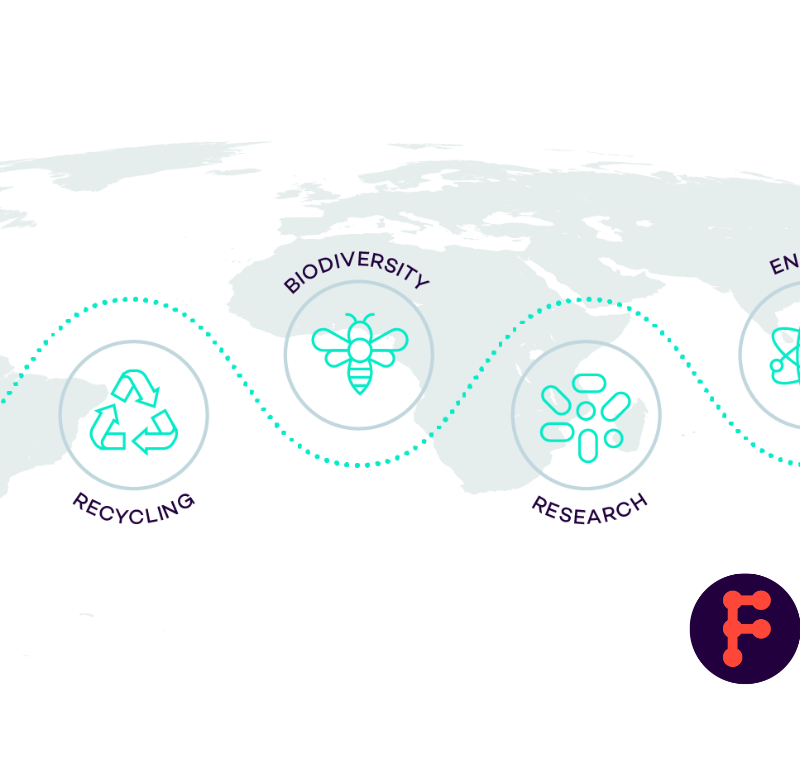Condé Nast commits to becoming carbon-neutral by 2030
Condé Nast has announced the next phase of its global sustainability strategy as the company continues to integrate more sustainable practices throughout its business. The new set of commitments are aimed at reducing the company’s global environmental footprint to meet its goal of becoming carbon-neutral by 2030 and leveraging the company’s voice to drive positive change through its portfolio of media brands.
“Condé Nast holds a unique and influential position in the media industry and we’re committed to doing business in ways that are socially and environmentally responsible,” said Alice Pilia, Senior Policy Advisor, Condé Nast.
“In 2020, we launched our sustainability strategy which established a solid foundation for action and we’re now focused on embedding our commitments across all business functions. We believe we have a duty to both inform and inspire the public through our journalism and lead by example by ensuring we continue to operate in a way that reduces our impact on the planet.”
Condé Nast’s new commitments include:
- Condé Nast will only accept advertisements from energy companies which promote renewable energy products and technologies or encourage audiences to transition to renewable energy and other more environmentally-friendly solutions. It will also strive to curb greenwashing by adopting the standards set out in the International Chamber of Commerce (ICC) Framework for Responsible Environmental Marketing Communications.
- Extending the company’s paper and plastic practices to license partners, including the commitment to only use paper which is internationally certified as sourced from responsibly managed forests, and to eliminate single-use plastic packaging by 2025. The company has eliminated more than 90% of single use plastic globally and 100% of the paper used to produce the company’s print across its owned operations is certified (FSC and/or PEFC-certified).
- The transition to 100% renewable energy across all offices globally by 2025. The company’s offices in Germany, Italy, Spain, New York City and the U.K. have already transitioned. Condé Nast’s office in India has also invested in green energy by purchasing Renewable Energy Certificates.
- A commitment to set a science-based target through the Science Based Targets initiative (SBTi), which makes Condé Nast the first media company which publishes print to do so. This aligns the company’s emissions targets with the Paris Agreement, and more specifically Business Ambition for 1.5C Commitment, bolstering its commitment to become carbon-neutral by 2030.
- The appointment of a network of Condé Nast Global Editorial Ambassadors for Sustainability, who will champion sustainability across the company’s media brands and core editorial pillars. The ambassadors include:
- Adam Baidawi, Deputy Global Editorial Director, GQ; Head of Editorial Content, British GQ, is appointed to be the leading voice and champion of our sustainable lifestyle vertical.
- Jessica Cruel, Editor-in-Chief, Allure; Deborah Joseph, European Editorial Director, Glamour are appointed as leading advocates in sustainability topics across the beauty sector.
- Ken Fisher, Founder and Editor-in-Chief, Ars Technica, is appointed to shape the paradigm shift for the technology industry and innovation sphere.
- Maddalena Fossati, Editor-in-Chief, La Cucina Italiana, is appointed to lead the transformative agenda in food sustainability.
- Tonne Goodman, Sustainability Editor, Vogue U.S., is appointed to shape the evolving narratives and transformation in fashion sustainability.
Condé Nast’s detailed sustainability plan is available at https://www.condenast.com/sustainability-strategy-phase-two-goals.
In 2019, Condé Nast became the first media company to sign the Fashion Industry Charter for Global Climate Action and made pledges as part of the Ellen MacArthur Foundation New Plastics Economy Global Commitment. The company is also a supporting organisation of the UN Fashion Industry Charter for Climate Action and the UN Glasgow Declaration on Climate Action in Tourism, and a member of the UN SDG Media Impact.










